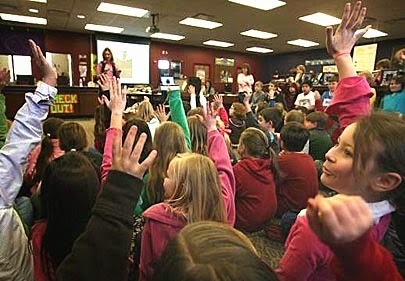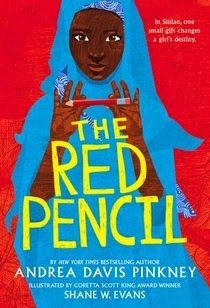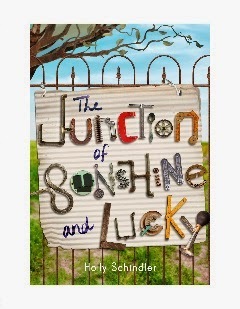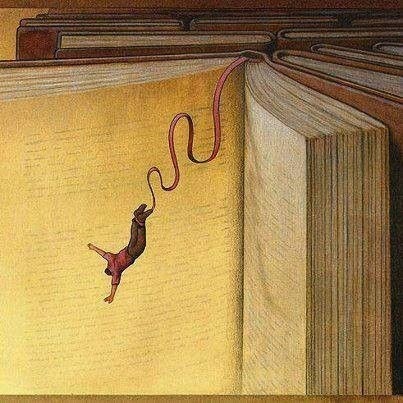Marcia Thornton Jones's Blog, page 179
February 4, 2015
Megan's Journey to MG Publication
 My first published book, Secrets of Truth & Beauty, was a YA novel that came out in 2009. The book I wrote after that was YA, too. I called it Bottle Cap and it's the story of a mathematician in a family of artists. It didn't sell for a variety of reasons. One was market: those were tough years for contemporary realistic fiction. A bigger problem was the novel's voice: there was a slyly funny narrator living there, but she was buried in fleshy prose.
My first published book, Secrets of Truth & Beauty, was a YA novel that came out in 2009. The book I wrote after that was YA, too. I called it Bottle Cap and it's the story of a mathematician in a family of artists. It didn't sell for a variety of reasons. One was market: those were tough years for contemporary realistic fiction. A bigger problem was the novel's voice: there was a slyly funny narrator living there, but she was buried in fleshy prose.
The failure to sell that book rocked me. I tried to write another YA. I thought I had an idea that was at least a little paranormal. I added superheroes and their requisite super powers. It wasn't going anywhere. So then I spun my wheels with a project I'd been working on before Secrets. I was certain I would never sell another book. It's okay, I told myself. Most people don't get to publish even one book. You should feel lucky.
I didn't feel lucky.
I went back to the superhero book, I had this idea that maybe there was something about the water in this town. Maybe it was the fountain of youth. I wrote, but it felt like such a strange book. I thought maybe it was actually a middle grade. I doubted every word.
I signed up for a workshop at The Telling Room with Monica Wood. It was about kick starting your writing. I feel stuck, I confessed. I don't trust myself. Monica was a gentle yet exhilarating teacher. I don't think the workshop was more than two hours long, but I left re-invented. Screw it, I told myself (though I might have used a stronger word). So what if it’s a weird book, it's the book you want to write. It’s the book that only you can write, and, anyway, know what else is a weird book? When You Reach Me is a weird book. Holes is a weird book. I was working at a high school and one of my students said, when trying to describe his favorite book, "You know, sometimes the best books are the hardest to explain." Yes! I almost hugged him.
I wish I could say it was easy from there. I got the draft out but it still needed a lot of work. My agent was amazing. I worked that book until I wasn't sure if it was good or bad, but I knew it was something new for me.
 The Water Castle was published in 2012 and was received more warmly than I ever could have imagined back in those doldrum days.
The Water Castle was published in 2012 and was received more warmly than I ever could have imagined back in those doldrum days.This month is going to be interesting hearing all of our publication journeys. It’s important to remember that every person and every book takes a different path, and that having one book published doesn’t make the next book any easier to write or to sell. Even the notion of writing the book that only you can write won’t work for everyone. Sometimes you need to write the book that will put food on your table. But for me, I was writing nothing. No good words were going to come out until I sorted out The Water Castle. I just had to wait for the time and the place and the stars and my attitude and the amazing help of mentors like Monica Wood to get it right.
A postscript: I went back to Bottle Cap. I opened a new file and did a complete rewrite. I started from word one, page one, and unearthed the wry voice that wanted to get out and tell Veronica's story. The book, now called Very in Pieces and very much YA, will be out this fall from Harper Teen.
Published on February 04, 2015 01:30
February 3, 2015
How I Got Published - Irene Latham
 One thing I love about writing is how each person's journey to publication is so very unique! When I was first struggling to get published, I loved reading all the different ways to Destination Book Deal. I still love reading those stories! There's a little bit of magic in each and every one.
One thing I love about writing is how each person's journey to publication is so very unique! When I was first struggling to get published, I loved reading all the different ways to Destination Book Deal. I still love reading those stories! There's a little bit of magic in each and every one.And since the questions I get asked most often are about the timing of these things, I've decided to present mine as a timeline. Enjoy!
October 2004: attended my first Southern-Breeze SCBWI conference. Had a formal manuscript critique of the first middle grade novel I ever completed, and the editor asked me to send the full! (I did, and I got a very, encouraging rejection. That novel never sold.)
February & October 2005: attended two SCBWI conference and had my new manuscript then titled THE WITCHES OF GEE'S BEND critiqued by an author at one conference, and an editor at the other. I started submitting. My dream was to be discovered off the slush pile. I got a slew of no responses, a couple of nice rejections, and a couple of form rejections. I only submitted to people/houses I'd made connections with through the conferences.
October 2006: Yet another SCBWI conference. Heard agent Rosemary Stimolaspeak. Thought, hmmm, maybe there's something to this agent thing. I loved Rosemary's straightforwardness and industry savvy. (Suzanne Collins, anyone?) Shortly after the conference I submitted my manuscript.
Within 15 minutes, Rosemary rejected it because it was written as a novel-in-verse, and she said she couldn't sell it.
So I decided I would rewrite it in prose.
Upon rewrite, it STILL wasn't quite right, so...
April 2007: I started writing the novel again and made two very important changes: changed from 3rd person to 1st and made my MC a girl instead of a boy. Also I spent a great deal of time studying Sol Stein's books.
Finally, things started to click.
June 2007: Submitted my new manuscript to Rosemary. This time she said YES! The first editor she sent it to was interested, but wanted to see revisions based on her notes. I spent 6 weeks working on those, and then we sent the book back to her. It was summer, during which much of publishing schedules become erratic. There was lots and lots of waiting. And then....
October 2007: Book Deal!!!
January 2010: After much hard work with Excellent Editor Stacey Barney (seriously, I feel like I earned my MFA with her), LEAVING GEE'S BEND was released by G.P. Putnam's Sons/Penguin.
 My very first school visit
My very first school visit for LEAVING GEE'S BEND!Five years later I still get misty-eyed when I talk about that book. SO special -- and life-changing for me. Firsts are like that.
Happy writing -- and if you are out there trying to get published, keep going!
Published on February 03, 2015 04:00
February 2, 2015
One Letter at a Time By Ann Haywood Leal
Amira, just twelve years old and in the midst of civil war-torn Sudan, wants nothing more than to learn to read and write and to attend school. I fell in love with little Amira from Andrea Davis Pinkney's first word in her stunning new novel, THE RED PENCIL.
I was reminded of how words and teachers have made me who I am as a person, as a third-generation teacher, and as a writer.
I most likely wouldn't be here if my grandmother hadn't been allowed to stay in school. She was born to a family of several children and would have been required to quit school early on and help on the farm and care for her younger siblings. An education wasn't considered important for a girl.
She was born without fingers on her left hand. Her father thought she would never marry. He knew she would need to be able to support herself, so she was allowed to go to school. She graduated and became a teacher. She and the man who would become my grandfather wrote long letters back and forth before they were married. He had lost one of his legs when he was run over by a cart in Ireland.
I wish I had those letters, but I was lucky enough to have my grandma in my life until I was twenty. I loved that hand of hers, especially when I was a little girl. Instead of holding my hand, I held hers. It fit perfectly in my kid-sized hand.

I remember exactly what her watch looked like on her narrow wrist. But what I remember even more clearly is her voice. She couldn't carry a tune at all, but she sang out loudly from the church pew. I can remember the rise and fall of that wonderful voice as she recited her favorite poems to me. Poems she'd learned in school.
Thank you, Grandma, for teaching me the power of letters and words. And thank you, Andrea Davis Pinkney, for the power of The Red Pencil.

I was reminded of how words and teachers have made me who I am as a person, as a third-generation teacher, and as a writer.
I most likely wouldn't be here if my grandmother hadn't been allowed to stay in school. She was born to a family of several children and would have been required to quit school early on and help on the farm and care for her younger siblings. An education wasn't considered important for a girl.
She was born without fingers on her left hand. Her father thought she would never marry. He knew she would need to be able to support herself, so she was allowed to go to school. She graduated and became a teacher. She and the man who would become my grandfather wrote long letters back and forth before they were married. He had lost one of his legs when he was run over by a cart in Ireland.
I wish I had those letters, but I was lucky enough to have my grandma in my life until I was twenty. I loved that hand of hers, especially when I was a little girl. Instead of holding my hand, I held hers. It fit perfectly in my kid-sized hand.

I remember exactly what her watch looked like on her narrow wrist. But what I remember even more clearly is her voice. She couldn't carry a tune at all, but she sang out loudly from the church pew. I can remember the rise and fall of that wonderful voice as she recited her favorite poems to me. Poems she'd learned in school.
Thank you, Grandma, for teaching me the power of letters and words. And thank you, Andrea Davis Pinkney, for the power of The Red Pencil.

Published on February 02, 2015 14:24
February 1, 2015
SMACK DAB NEWS
 Scholastic recently acquired the paperback book club and fair rights to Holly Schindler's debut MG, THE JUNCTION OF SUNSHINE AND LUCKY. Publication is set for April of 2015.
Scholastic recently acquired the paperback book club and fair rights to Holly Schindler's debut MG, THE JUNCTION OF SUNSHINE AND LUCKY. Publication is set for April of 2015.
Published on February 01, 2015 03:00
January 30, 2015
2015: The Year I was Realistic Instead of Dreamy by Tracy Holczer
1. Try to be more present in the moment (so you don't do things like: forget where you are at a stoplight that lasts more than thirty seconds, put the milk in with the glasses, or forget to rinse the conditioner out of your hair)
2. Wash the dog.
3. Ask your children more questions.
4. Collect compliments (so you can read them when it's two o'clock in the afternoon and you catch your reflection which includes: pajamas, a rat's nest of hair and mascara caked under your eyes because you've been writing all morning and forgot you were a human being)
5. Make sure the dust bunnies don't turn into tumbleweeds.
There! Perfectly reasonable.
May you all have a wonderfully reasonable year.
2. Wash the dog.
3. Ask your children more questions.
4. Collect compliments (so you can read them when it's two o'clock in the afternoon and you catch your reflection which includes: pajamas, a rat's nest of hair and mascara caked under your eyes because you've been writing all morning and forgot you were a human being)
5. Make sure the dust bunnies don't turn into tumbleweeds.
There! Perfectly reasonable.
May you all have a wonderfully reasonable year.
Published on January 30, 2015 02:00
January 28, 2015
Making Glorious Mistakes: January Theme by J. Cervantes
I admit it. I have never been one for New Year's resolutions. I'm one of those every day is a new day to sprint toward the sun, to sail over the moon, to dive off the precipice into the unknown. I never said I do it with grace or fearlessness or even with my eyes open. But I do try to do it with full lung capacity. That's definitely important.
 As I ponder 2015 (we writers are so good at pondering), I'm reminded of a post Neil Gaiman wrote a few years ago. I'm sharing his words here because they are brilliantly simple. Perhaps you'll find some truth or meaning in them as well.
As I ponder 2015 (we writers are so good at pondering), I'm reminded of a post Neil Gaiman wrote a few years ago. I'm sharing his words here because they are brilliantly simple. Perhaps you'll find some truth or meaning in them as well.
“I hope that in this year to come, you make mistakes.
Because if you are making mistakes, then you are making new things, trying new things, learning, living, pushing yourself, changing yourself, changing your world. You're doing things you've never done before, and more importantly, you're Doing Something.
So that's my wish for you, and all of us, and my wish for myself. Make New Mistakes. Make glorious, amazing mistakes. Make mistakes nobody's ever made before. Don't freeze, don't stop, don't worry that it isn't good enough, or it isn't perfect, whatever it is: art, or love, or work or family or life.
Whatever it is you're scared of doing, Do it.
Make your mistakes, next year and forever.”
 As I ponder 2015 (we writers are so good at pondering), I'm reminded of a post Neil Gaiman wrote a few years ago. I'm sharing his words here because they are brilliantly simple. Perhaps you'll find some truth or meaning in them as well.
As I ponder 2015 (we writers are so good at pondering), I'm reminded of a post Neil Gaiman wrote a few years ago. I'm sharing his words here because they are brilliantly simple. Perhaps you'll find some truth or meaning in them as well.“I hope that in this year to come, you make mistakes.
Because if you are making mistakes, then you are making new things, trying new things, learning, living, pushing yourself, changing yourself, changing your world. You're doing things you've never done before, and more importantly, you're Doing Something.
So that's my wish for you, and all of us, and my wish for myself. Make New Mistakes. Make glorious, amazing mistakes. Make mistakes nobody's ever made before. Don't freeze, don't stop, don't worry that it isn't good enough, or it isn't perfect, whatever it is: art, or love, or work or family or life.
Whatever it is you're scared of doing, Do it.
Make your mistakes, next year and forever.”
Published on January 28, 2015 22:00
January 27, 2015
Resolutions
So today I'm supposed to post about resolutions.--and now that we're about a month into the new year, it's a good time to take a moment to see how they are going.
My writing resolutions are going terribly. They always do. How about yours?
Now the fact that my writing resolutions are going terribly doesn't surprise me in the least. For me, writing doesn't lend itself to resolutions. I can say "I will write five pages a day," or "I will write for 5 hours" and make myself stick to it--but I won't necessarily walk away with something that's usable by the end of it. Forcing a specific kind of productivity rarely seems to work--and yet I'm forever setting a timer, checking work counts, and checking off boxes on a list.
But sometimes writing requires work that's hard to quantify. Sometimes it requires that I go wash dishes--because this is where a lot of plotting happened in my mind. Sometimes it requires I spend a couple of hours fiddling with a small but crucial detail. Sometimes it involves reading a book or watching a movie to look at ways that other people's stories come together (or don't). Sometimes it involves taking a break.
None of these things are easy to quantify, but all of them are important. And this year, I'm resolving to treat them accordingly.
My writing resolutions are going terribly. They always do. How about yours?
Now the fact that my writing resolutions are going terribly doesn't surprise me in the least. For me, writing doesn't lend itself to resolutions. I can say "I will write five pages a day," or "I will write for 5 hours" and make myself stick to it--but I won't necessarily walk away with something that's usable by the end of it. Forcing a specific kind of productivity rarely seems to work--and yet I'm forever setting a timer, checking work counts, and checking off boxes on a list.
But sometimes writing requires work that's hard to quantify. Sometimes it requires that I go wash dishes--because this is where a lot of plotting happened in my mind. Sometimes it requires I spend a couple of hours fiddling with a small but crucial detail. Sometimes it involves reading a book or watching a movie to look at ways that other people's stories come together (or don't). Sometimes it involves taking a break.
None of these things are easy to quantify, but all of them are important. And this year, I'm resolving to treat them accordingly.
Published on January 27, 2015 07:07
January 26, 2015
January Theme: Resolution by Olugbemisola Rhuday-Perkovich
(adapted from a recent lecture)
Structure is good. Formulas often work to organize our thoughts and move us forward. I know from spending time teaching in an early childhood classroom that even the most seemingly free-wheeling, anything-goes environments are often very carefully crafted and structured.
Where it can get sticky, of course, is in that compulsion to get too focused on formula. I'd get anxious when people asked "Are you a pantser or a plotter?" Uh, I guess I just start writing, sometimes a list, sometimes some dialogue, sometimes... I just..do stuff, and that works for me. Sort of. Sometimes, most of the time, I get stuck somewhere in the bog of the middle, with characters wandering aimlessly, or worse, sitting still. So then I whip out one of my trusty books on PLOT, and plug in a formula -- a Mountain...3 Acts -- wait no, 5!...hmmm, who's my Shapeshifter? Is this the right beat?
And then I get lost. In trying to make my story fit a formula that's supposed to be foolproof, I lose sight of the story itself. A large part of it, I think, is the fear of that period of WHAT THE HECK AM I DOING?! WHAT IS THIS BOOK?! and hoping that a system or formula will help me avoid that.
“At times in my thinking I take my hands off the handlebars and see what happens. In a poem I do that all the time.” -William Stafford
For me at least, there is NO ESCAPING that period "in the weeds." I will accept that. I will understand that I can use a number of tools to work my way out, but work my way out I will. Eventually. I may need to make a beat sheet or storyboard, but I also may need to just take my hands off the handlebars and knit, or take a walk, or a nap. Or just sit. I'll go further up and further in, and get through. Is that a resolution? I don't know. It's what I'm going to try. Some days it will work, some days it won't. And that's how it is.
Structure is good. Formulas often work to organize our thoughts and move us forward. I know from spending time teaching in an early childhood classroom that even the most seemingly free-wheeling, anything-goes environments are often very carefully crafted and structured.
Where it can get sticky, of course, is in that compulsion to get too focused on formula. I'd get anxious when people asked "Are you a pantser or a plotter?" Uh, I guess I just start writing, sometimes a list, sometimes some dialogue, sometimes... I just..do stuff, and that works for me. Sort of. Sometimes, most of the time, I get stuck somewhere in the bog of the middle, with characters wandering aimlessly, or worse, sitting still. So then I whip out one of my trusty books on PLOT, and plug in a formula -- a Mountain...3 Acts -- wait no, 5!...hmmm, who's my Shapeshifter? Is this the right beat?
And then I get lost. In trying to make my story fit a formula that's supposed to be foolproof, I lose sight of the story itself. A large part of it, I think, is the fear of that period of WHAT THE HECK AM I DOING?! WHAT IS THIS BOOK?! and hoping that a system or formula will help me avoid that.
“At times in my thinking I take my hands off the handlebars and see what happens. In a poem I do that all the time.” -William Stafford
For me at least, there is NO ESCAPING that period "in the weeds." I will accept that. I will understand that I can use a number of tools to work my way out, but work my way out I will. Eventually. I may need to make a beat sheet or storyboard, but I also may need to just take my hands off the handlebars and knit, or take a walk, or a nap. Or just sit. I'll go further up and further in, and get through. Is that a resolution? I don't know. It's what I'm going to try. Some days it will work, some days it won't. And that's how it is.
Published on January 26, 2015 09:53
January 22, 2015
Smack Dab in the Classroom: Teaching Community Service through Books, by Dia Calhoun
Many authors for kids use their books as an opportunity to give back--by helping charities or other community service organizations. Authors Lois Brandt, Laurie Ann Thompson, Justina Chen, Lorie Ann Grover, and Janet Lee Carey come to mind as prime examples of this.
Literature teachers could use this idea as a class project. Assign or have groups of kids choose a book from a list you provide. Then have each group brainstorm a community service link to that book.
For example, take Laurie Ann Thompson's book, Emmanuel's Dream. It's based on a true story about Emmanuel Ofosu Yeboah, the amazing, disabled bicyclist who road 400 miles across Ghana to show that disability is not inability. Students could find organizations that benefit the disabled, or disabled bicyclists, etc. Then they could map out an actual program to use Emmauel's Dream to help raise money or awareness for that organization.
School's want to teach students about community service. What better way than through books?
Literature teachers could use this idea as a class project. Assign or have groups of kids choose a book from a list you provide. Then have each group brainstorm a community service link to that book.
For example, take Laurie Ann Thompson's book, Emmanuel's Dream. It's based on a true story about Emmanuel Ofosu Yeboah, the amazing, disabled bicyclist who road 400 miles across Ghana to show that disability is not inability. Students could find organizations that benefit the disabled, or disabled bicyclists, etc. Then they could map out an actual program to use Emmauel's Dream to help raise money or awareness for that organization.
School's want to teach students about community service. What better way than through books?
Published on January 22, 2015 22:00
New Year Intentions
I’ve never much liked the word RESOLUTION. It’s always seemed like a hard word to me—like something difficult you have to white-knuckle your way through, and if you don’t or can’t, you’ve failed.
I much prefer the word INTENTION. It’s softer, more female, and tied into words like purpose and design. It’s more about a way of being in the world than achieving an end result.
So I don’t have resolutions, but I do have intentions. The first of which is to write every day and to put “my” work first. I began the year with a new, interesting, complicated freelance writing job with a short deadline. It would be easy to let it take over my life, but I’m beginning each day by working on my own novel, even if only for fifteen minutes. After the alarm goes off and the tea-water boils, I sit down at my desk with pen in hand. I set myself up for success by leaving my WIP notebook open on my desk. A brief note about whatever comes next is the first thing I see.
And the days when the words aren’t flowing, or the pull of the freelance job is so loud that I can’t focus on my story? It’s okay – I'm not a failure. There’s always tomorrow.
I much prefer the word INTENTION. It’s softer, more female, and tied into words like purpose and design. It’s more about a way of being in the world than achieving an end result.
So I don’t have resolutions, but I do have intentions. The first of which is to write every day and to put “my” work first. I began the year with a new, interesting, complicated freelance writing job with a short deadline. It would be easy to let it take over my life, but I’m beginning each day by working on my own novel, even if only for fifteen minutes. After the alarm goes off and the tea-water boils, I sit down at my desk with pen in hand. I set myself up for success by leaving my WIP notebook open on my desk. A brief note about whatever comes next is the first thing I see.
And the days when the words aren’t flowing, or the pull of the freelance job is so loud that I can’t focus on my story? It’s okay – I'm not a failure. There’s always tomorrow.
Published on January 22, 2015 03:00



